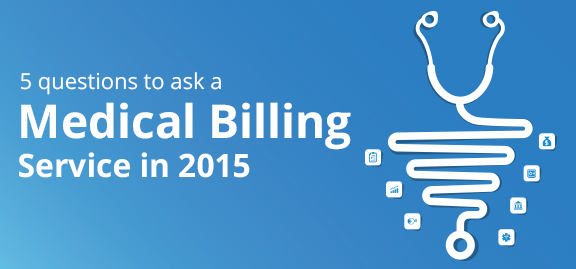This article is the first in a series of ‘Billing Issues’ that practices around the nation are facing.
Providers are straining to meet the stringent requirements of ICD-10, Meaningful Use Stage 2, PQRS and other programs, in order to avoid government penalties and earn more revenue. To do so while dealing with time and resource constraints, many may turn to medical billing companies to assist them.
To manage this influx of providers and meet government requirements, medical billing companies will need to “up their game”. Those who are unable to do so will be forced out of business, you must ensure that your practice doesn’t gamble on the wrong option.
For providers, practices or physicians on the fence, this article will guide you through the process of determining the safest medical billing option for your practice in 2015.
Is your billing company ready for ICD-10?
Any billing vendor not ready for the ICD-10 code updates (which come into effect on October 1, 2015), will mean that any practice billing via them will not get paid for services provided after that date.
Moreover, if the medical billing company does not have a clear conversion plan to ICD-10 for your practice; you need to cross such vendors off your list, or switch your current vendor in the case of existing users.
The plan should include tools such as code mapping, and both internal and external testing in the month leading up to the October deadline.
Do they have comprehensive safety and security protocols?
The previous year witnessed several health IT-related security breaches. Even if your practice is sufficiently protected, these security efforts will be for naught if patient information leaks out via your billing company.
A billing company that lacks adequate protection from external threats such as data hackers could compromise invaluable patient data. The billing company whose services you use in 2015 must provide you with a detailed description of their security measures, and be backed by credentials (such as HIPAA certification); to ensure that your data is used in the safest possible way. Their systems must also have solid emergency and backup plans.
Can their staff handle your billing?
Next, you must inquire about the employee to client ratio of the medical billing company. If the ratio of employees to clients is very low, this would mean that they are already understaffed. Therefore, even if their staff is competent, they are more probable to fail to mismanagement issues as their client base grows (which we are expecting to occur in 2015).
Do they have specialists?
Apart from an adequate employee base, the company must have specialists for different billing processes such as negotiating with insurance carriers, basic data entry, insurance verification and coding. The billing company should assign a dedicated account manager – a go-to-guy for billing queries – exclusively for your practice.
Are their systems integrated?
You must inquire as to the systems being used by your potential medical billing service company and if they integrate with your Electronic Health Record (EHR) system.
Numerous EHR vendors provide medical billing services in addition to their solutions; and you could select your EHR vendor as your medical biller, provided that they meet the aforementioned criteria.
This year is a make-or-break period for medical billing service companies. That is why it extremely important to ask these questions right now to ensure that your medical billing service company is in the industry for the long-run. If not, switch to a more reliable, future-oriented billing option in the first quarter of 2015.
